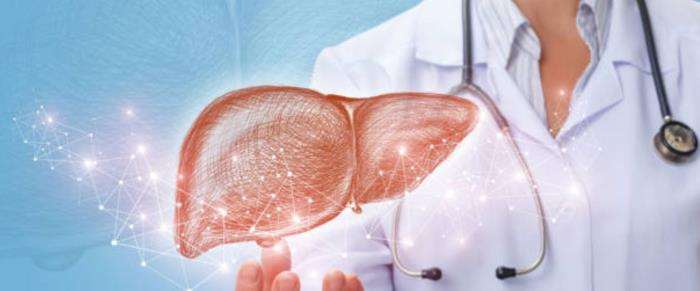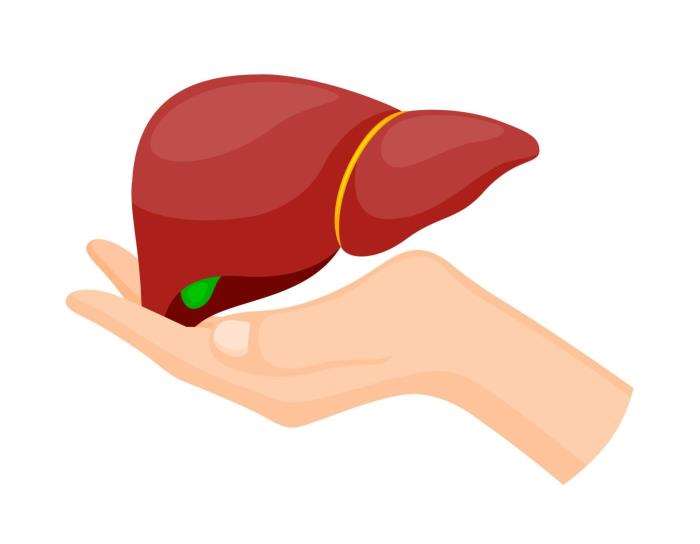Liver transplants are critical interventions for patients suffering from end-stage liver disease or acute liver failure. The liver is essential for various bodily functions, including metabolism, detoxification, and protein synthesis. When the liver fails, a transplant may be the only viable option. Patients can receive a liver from either a living donor or a deceased donor, each presenting unique advantages and challenges.
Medical disclaimer: This content is for general awareness and does not replace a doctor’s consultation. For diagnosis or treatment decisions, consult a qualified specialist.
Defining Living-Donor Liver Transplantation
A living-donor liver transplant involves a healthy individual donating a portion of their liver to a recipient. The donor's liver has the remarkable ability to regenerate, allowing the donor to live a healthy life with a reduced liver volume. This type of transplant is particularly beneficial for patients who need a liver quickly, as it can be scheduled at a time that suits both the donor and recipient.
Defining Deceased-Donor Liver Transplantation
A deceased-donor liver transplant occurs when a liver is harvested from an individual who has been declared brain dead. This process is governed by strict medical and ethical guidelines to ensure the organ is suitable for transplantation. Deceased donor livers are allocated based on various factors, including the recipient’s medical urgency and compatibility with the donor organ.

Immediate Availability of Living-Donor Livers
One of the most significant benefits of a living-donor liver transplant is the immediate availability of the organ. Unlike deceased donor organs, which may have a long waiting period, living donors can schedule the surgery at a mutually convenient time. This timely access can be lifesaving for patients in critical condition, reducing the risk of complications associated with prolonged wait times.
Reduced Waiting Times for Liver Transplants
The waiting list for deceased donor organs can be extensive, with many patients facing long delays. In contrast, living-donor liver transplants can significantly reduce waiting times. This decrease in waiting periods can lead to better outcomes for patients, as they are less likely to deteriorate while waiting for a suitable organ. The urgency of the situation often necessitates quicker intervention, making living donation a viable option.
Improved Survival Rates with Living Donors
Research indicates that patients receiving a liver from a living donor often experience improved survival rates compared to those receiving organs from deceased donors. The immediate availability and the ability to perform the transplant before the patient’s condition worsens contribute to these enhanced outcomes. Studies show that living-donor liver transplants can lead to a higher rate of graft survival, which is crucial for long-term health.
Minimized Risk of Organ Rejection in Living-Donor Transplants
Organ rejection is a significant concern in any transplant procedure. However, living-donor liver transplants often present a lower risk of rejection due to better immunological compatibility between the donor and recipient. Since living donors are typically related or closely matched to the recipient, the likelihood of the body recognizing the new organ as foreign decreases, thus improving transplant success rates.
Potential for Better Organ Quality from Living Donors
Living-donor organs are often of higher quality compared to those from deceased donors. The health status of the living donor can be thoroughly evaluated before the transplant, ensuring that the liver is functioning optimally. In contrast, the quality of deceased donor organs can be affected by various factors, including the cause of death and time elapsed before organ retrieval, potentially compromising the transplant’s success.
Psychological Benefits for Living Donors
For many living donors, the act of donating can provide significant psychological benefits. Engaging in a living-donor liver transplant can foster a sense of purpose and fulfillment, knowing they are saving a life. This altruistic act often strengthens familial and social bonds, as the donor and recipient share a profound experience that can enhance their relationship.

Ethical Considerations in Living-Donor Liver Transplantation
Living-donor liver transplantation raises various ethical questions, particularly concerning the donor's health and informed consent. It is essential that potential donors are thoroughly educated about the risks involved, including the possibility of surgical complications and long-term health effects. Ethical guidelines ensure that the decision to donate is voluntary and made without coercion, safeguarding the donor's well-being.
Challenges Associated with Living-Donor Liver Transplants
Despite their advantages, living-donor liver transplants are not without challenges. The surgical procedure poses risks for the donor, including complications such as bleeding, infection, or liver failure. Additionally, finding a suitable living donor can be difficult, as not all patients have willing and compatible donors. These challenges must be carefully weighed against the benefits when considering transplantation options.
Waiting Times and Uncertainty in Deceased-Donor Liver Transplants
Deceased-donor liver transplantation often involves significant uncertainty regarding waiting times. Patients may wait months or even years for a suitable organ, during which their health may decline. This unpredictability can lead to increased anxiety and stress for patients and their families. The long waiting period can also result in complications that may affect the overall success of the transplant once it occurs.
Potential for Organ Quality Issues in Deceased-Donor Livers
The quality of organs from deceased donors can vary significantly. Factors such as the donor's age, health history, and the circumstances surrounding their death can impact the viability of the liver. Additionally, time is a critical factor; the longer the organ remains outside the body, the greater the risk of damage. These variables can affect transplant outcomes, making it essential to consider the overall quality of the organ.
Post-Transplant Recovery in Living-Donor vs. Deceased-Donor
Post-transplant recovery can differ significantly between living and deceased donors. Living donors often experience a shorter recovery time due to the planned nature of the surgery and the health of the organ. In contrast, recipients of deceased-donor livers may face more complications during recovery, as the organ may not function optimally initially. Understanding these differences is crucial for managing patient expectations and post-operative care.
Long-Term Outcomes for Recipients of Living-Donor Livers
Long-term outcomes for recipients of living-donor livers tend to be favorable. Studies indicate that these patients often experience better liver function and overall health compared to those receiving deceased donor livers. The ability to select a compatible donor and the timely nature of the transplant contribute to these positive outcomes, emphasizing the importance of considering living donation as a viable option.
Long-Term Outcomes for Recipients of Deceased-Donor Livers
While many recipients of deceased-donor livers do well, the long-term outcomes can be more variable. Factors such as the age and health of the donor, the urgency of the transplant, and the recipient's health status all play critical roles in determining success. Ongoing monitoring and management of immunosuppressive therapy are essential to prevent complications and ensure the longevity of the transplanted organ.
Cost Considerations in Living-Donor vs. Deceased-Donor Transplants
The financial implications of liver transplantation can vary significantly between living and deceased donors. Living-donor transplants may incur additional costs related to the donor's surgery and recovery. However, the reduced waiting time and potentially better outcomes can offset these costs. In contrast, deceased-donor transplants may involve longer hospital stays and higher post-operative care expenses, impacting the overall financial burden on patients and families.
Key Differences Between Liver Transplant and Liver Resection Surgery
Explore the differences between liver transplant and liver resection surgery. While liver resection involves removing a portion of the liver affected by disease, a transplant replaces the entire diseased liver with a healthy one. Learn when each procedure is recommended, their risks, and their recovery timelines.
Long-Term Outcomes of Liver Transplant Recipients in India
Discover the long-term outcomes of liver transplant recipients in India. With advancements in medical care and immunosuppressive therapy, patients can lead healthy, fulfilling lives. This article highlights success stories, challenges, and factors that contribute to long-term survival and quality of life after transplantation.
Conclusion: Making an Informed Decision on Liver Transplant Options
In conclusion, both living-donor liver transplants and deceased-donor liver transplants have distinct benefits and challenges. Living donation offers immediate availability, improved survival rates, and reduced waiting times, making it a compelling option for many patients. However, the choice between the two should be based on individual circumstances, including medical need, donor availability, and personal preferences. Comprehensive counseling and discussion with healthcare providers are essential for making an informed decision.
Best Liver Transplant in India
The Best Liver Transplant in India provides life-saving treatment for patients with end-stage liver disease, offering advanced surgical techniques and comprehensive post-transplant care for successful recovery.
Best Liver Transplant Hospitals in India
The Best Liver Transplant Hospitals in India are equipped with cutting-edge technology and expert medical teams, ensuring top-notch care and optimal recovery for liver transplant patients.
Liver Transplant Cost in India
The Liver Transplant Cost in India offers an affordable solution for patients needing liver transplantation, ensuring access to world-class care at competitive pricing.
Best Liver Transplant Surgeons in India
The Best Liver Transplant Surgeons in India are highly skilled in performing liver transplants, providing precise surgeries and personalized care to ensure the best possible outcomes for their patients.
FAQs: Common Questions About Liver Transplant Options
What is the primary difference between living-donor and deceased-donor liver transplants?
The primary difference lies in the source of the liver. Living-donor transplants involve a healthy individual donating a portion of their liver, while deceased-donor transplants utilize livers from individuals who have passed away. Each option has its own set of advantages and challenges.
How do I know if I am a candidate for a living-donor liver transplant?
Candidacy for a living-donor liver transplant is determined by a comprehensive evaluation by a transplant team. Factors considered include the severity of liver disease, overall health, and the availability of a suitable donor. A thorough assessment ensures the best possible outcomes.
Are there risks associated with being a living donor?
Yes, becoming a living donor involves surgical risks, including bleeding, infection, and complications related to anesthesia. It is crucial for potential donors to understand these risks and undergo a thorough evaluation to ensure they are suitable candidates for donation.
What are the long-term outcomes for recipients of living-donor livers?
Recipients of living-donor livers generally experience favorable long-term outcomes, with better liver function and survival rates compared to recipients of deceased-donor livers. Timeliness and compatibility play significant roles in these outcomes.
How can I find a living donor for a liver transplant?
Finding a living donor often involves reaching out to family members or friends who may be willing and eligible to donate. Additionally, transplant centers can provide resources and support to help identify potential donors through educational programs and outreach.
Machine perfusion enhances donor liver viability, improving transplant outcomes and expanding the donor pool. Exploring the Use of Machine Perfusion to Extend Donor Liver Viability
Explore how dietary supplements can support liver health post-transplant, focusing on safe integration with medical regimens. The Role of Dietary Supplements in Supporting Liver Health Post-Transplant
Explore the ethical dimensions of living donor liver transplantation, emphasizing donor safety and recipient benefits. The Ethics of Living Donor Liver Transplantation: Balancing Donor Safety and Recipient Needs